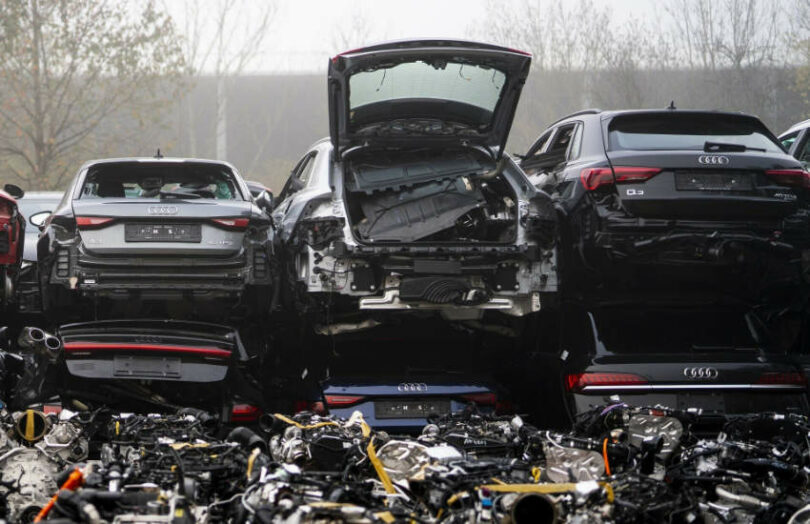Last week Audi announced an ambitious pilot recycling project. It has partnered with 15 organizations to use recycled materials from old cars in new auto production without compromising quality. One of the 15 companies is Circularise, which uses blockchain as part of the recycling and traceability process for digital product passports.
“The MaterialLoop project underscores our ambitious vision to operate a highly efficient circular economy concept for end-of-life vehicles,” said Audi CEO Markus Duesmann. “It is our goal to recover as many materials as possible at a high level of quality and reuse them in production.”
With most recycling, materials are extracted and sold to third parties to be used for any relevant application. The difference here is that Audi wants to use its own recycled materials.
Late last year, as a first step Audi took 100 used cars and dismantled them as part of MaterialLoop. Large plastic panels were immediately reusable and it sorted the remaining car bodies into different material types. One of the results was the creation of steel coils that are 12 percent MaterlalLoop materials and will be used to create around 15,000 inner door parts for the Audi A4.
“With digital product passports we can support traceability and accounting of the materials, processes, and impacts at each step of the value chain,” said Mesbah Sabur, Circularise Founder. “This makes it easier for automotive suppliers and OEMs to accurately measure the LCA (lifecycle assessment) and carbon footprint of vehicles as well as make more informed decisions regarding the circular vehicle production”. Circularise provided its product passports to all the project partners.
Audi is part of the VW Group, and Circularise previously partnered with Porsche for plastics traceability. The company sees its digital product passports as important for the EU battery passport regulation that comes into force in 2026. Other blockchain organizations that have produced battery solutions include Everledger which partnered with Ford, Circulor with Volvo and Jaguar and MOBI, which developed the first electric vehicle (EV) battery standard where Ford was also a partner.






